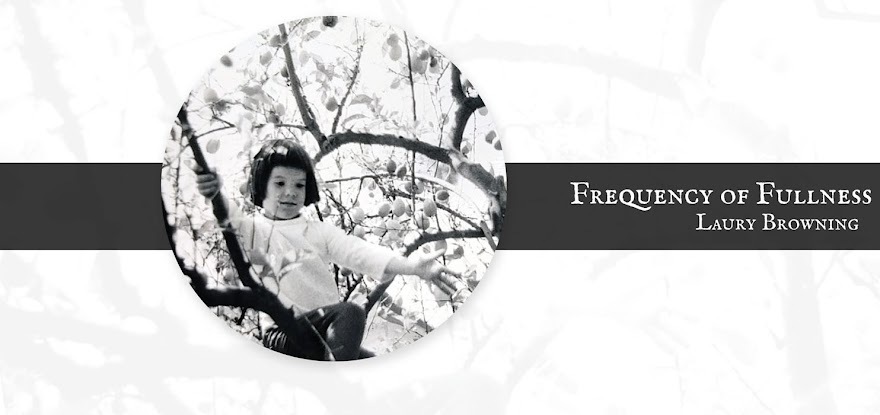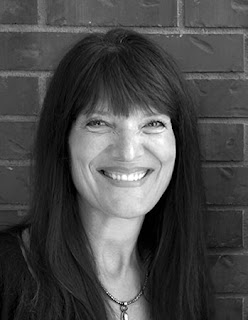The Nature of the Tell
7:56 PMWhen it comes right down to it, memory is more-or-less non-linear, and yet we walk around carrying this satisfying, or terrifying, perception of our own linear history.
We can piece it
together, sort of, and some of the time, the historical view is helpful. It
establishes a context for the story.
For example, I was born in Hackensack, New Jersey, in
1958. My dad’s work moved us to California when I was three years old, and this
is where I begin to have more concrete visual recollections of my childhood. I
moved into a big house on the corner of Sunset Boulevard and Beverly Drive,
right across the street from the Beverly Hills Hotel. Most of my time as a
child was spent at this house, on this street, playing in backyard and
exploring the world of alleys and parks close to my home.
First, this happened,
then that.
The funny thing about
the way our brains tend to file our life histories is that memory is empowered
by, and mewed to, feelings, especially strong feelings, because strong feelings
can trump common, every day emotional experience. This can create a bi-pass in
the automatic attachment of events, one after the other, to our mental stock
piling…the organization… of our life stories. In other words, with the
exception of a savant, I can’t “pull up”
Saturday, March 7th, 1978 unless
something that happened on that day had enough of an impact on me that it made
the cut from short term memory to long term memory, something that the brain
decides to dump or save on its own.
Crazy, right?
I suppose we could
write our story every day of our lives, taking notes about the calendar events
as they connect to the emotional ones; that would really be something! The
truest memoir ever. I even know people who have attempted this, but here’s the
thing. Life, the way it really happens, the beautiful moments blended in with
the messy ones, the excellent with the terrible, works more like fan fiction;
it’s organic, evolving as it has time to ferment and simmer.
Here is the basic
template: we have our family of origin, marriage, kids, heartache, victory,
maturity. Love and conflict. Resolution.
But over time, one
event in the middle might change the way we perceive a separate event that
happened all the way back at the beginning, and the whole story writes itself
differently in our psyches, new colors, tones. Like shape-shifting inside of a
kaleidoscope. Did what we think happened,
really happen? Or are we attached to
stories that were interpreted by three year olds, stories that evolve as we add
to them, gaining experiences that mature, or distort, our perceptions? And,
can’t our stories shift even more when we are exposed to the perspectives of
the others who, while present, experienced the events very differently?
That’s how our stories
really evolve. The facts don’t change…they happened just as they happened,
sequentially. But, the way we experience them in the moment, and the way we
experience the memory of these same events, aren’t necessarily the same. In other words, it seems that how we perceive today’s experience in the
future can be impacted by the perspective we gain between now and then.
Take the man who never
asked out that girl in high school who dreams about her his whole life. The
experience of that girl in high school…no big whoop. But the dream of her…that
energy may have really picked up some momentum over time. So now there is the
impact the girl had on him in 1970 compared to the impact of his daydreams,
multiplied by 40 years: totally different. Which experience is real? That’s not
even relevant.
So, when I picture
trying to write a linear version of my story, it feels like straight-up
bullshit. I don’t remember it in a straight line. I can revisit a moment, and
mull it around, and I might even remember what happened right before, or right
after. But I might not. My story comes out more
in vignettes, organized into mini collections for significance, meaning, or
emotional classification. Often, even the collections seem randomly connected.
On occasion, I am aware
that there is a little girl telling the story, a little girl who at one time was
doing her best to interpret the events around her, but who also didn’t see the
whole picture. That little girl has a distinct voice, visceral and direct.
Sometimes, my writer
sounds like the young woman who ran, half-cocked, into marriage and parenting.
Like a bull in a china shop, she sounds raw, and starving for attention and
approval. Her view is myopic, and her voice, filled with teenage angst and
constrained panic.
Lately, in midlife, I write
from the experience of a slightly-more-zen grandmother, one who is now in
recovery from addictions, chemical and otherwise, walking around in a perpetual
conversation with herself and the world around her. She’s wordy, but she has a more
relaxed voice, thankfully.
Copyright © 2016 Laury Boone Browning












0 comments